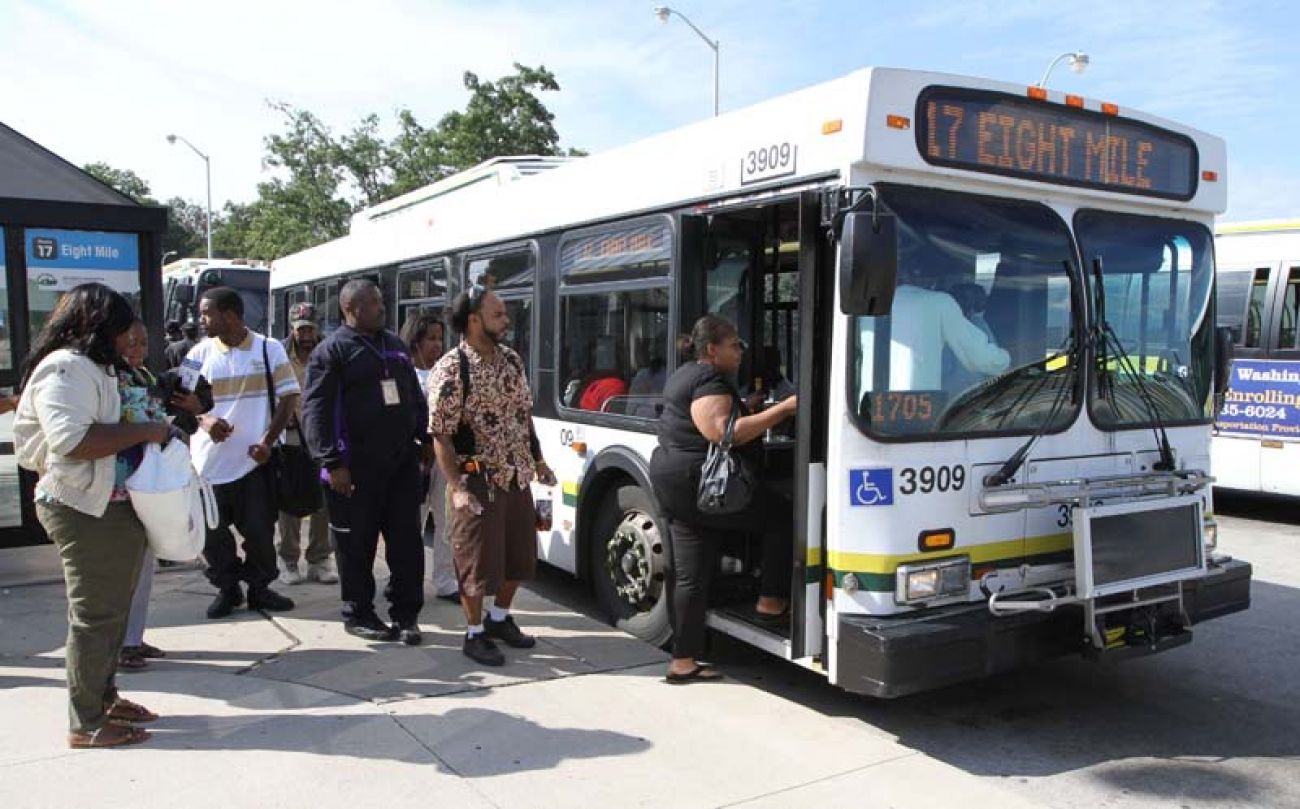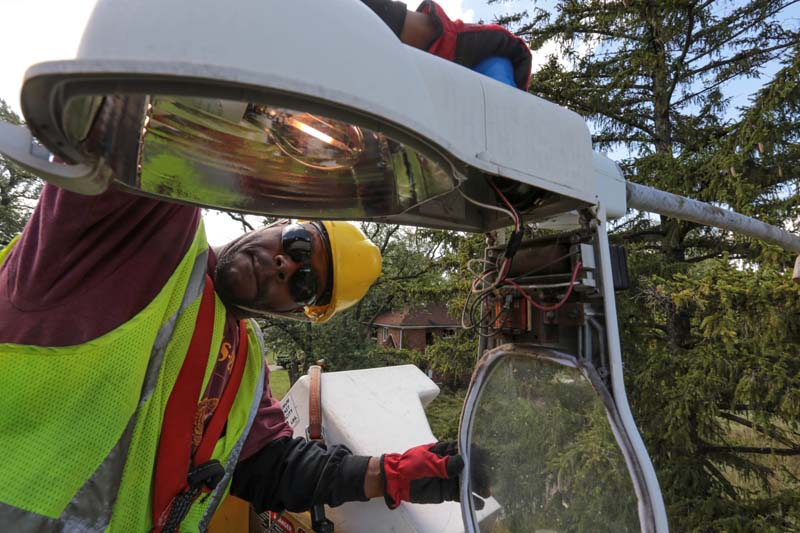Benchmark: City services

It was a big promise.
The day Mike Duggan was publicly sworn in as mayor, he asked that any resident who was thinking about moving out to give the city six months to make tangible improvements to the historically poor delivery of services to Detroiters.
With limited power while the city is under a state-appointed emergency manager, Duggan promised to improve three key services that have long plagued residents: working street lights, blight, and bus service.
The promise was as bold as the problems are imposing. Consider:
- 40 percent of Detroit street lights don’t work
- 40 percent of city buses are broken
- 78,000 vacant structures litter the city
- There are another 66,000 blighted and vacant lots
Residents are fed up.
A 2012 Detroit News poll revealed that 40 percent of Detroit residents were itching to leave within five years.
Those who remain are demanding change, as evidenced by a backlog of more than 3,000 complaints last spring about the lack of working street lights.
“The population of this city is not going to grow until we change the quality of life for the people in the neighborhoods,” Duggan said. “I’m not telling you in six months the problems are going to be solved. They’re not going to be solved. But six months from now, you’re going to be able to judge for yourself whether the leadership of this city has a sound plan and is achieving it.”
The new mayor will have help.
Last fall, federal officials announced $300 million in grants and private funds to help the city weather bankruptcy, including $150 million to fight blight – the so-called ruin porn that draws tourists and historians – and $14 million to improve public transit.
If any of the struggling service areas is capable of a quick, visible fix, it’s busing. In his first six months in office, Duggan pledged to train and install a transit police force, outfit buses with cameras and ensure that a full service of 225 buses will be on the road, with plenty of others in reserve.
In the long run, some say revolutionary change is needed. “The city needs to get out of the business of transportation; the city can’t afford it,” said Fred Westbrook, president and business agent for the Amalgamated Transit Union Local 26, which represents the city’s estimated 570 bus drivers.
Westbrook is among those who suggest a regional transit authority that would provide a bus system as sophisticated as those in other large cities, with additional routes from Detroit to Metro Airport, the University of Michigan, Pontiac and Lansing. Such a system also would include the $176-million, 3.3-mile M-1 Rail Streetcar Project that will run along Woodward from downtown to the North End. M-1 streetcars are scheduled to hit the road in 2016.
Detroiter Stephen Boyle, 53, has lived through many political promises. Mayor David Bing, Duggan’s predecessor, pledged to tear down 10,000 blighted buildings during his last term, but fell short by more than 1,000.
Boyle said he wants Duggan to attack the bus crisis first. “Mobility is a human right. If humans cannot move, they die – economically, physically and mentally,” Boyle said.
For all the bravado of Duggan’s six-month promise, he mostly steered clear of specifics. But the mayor and newly constituted city council are at least taking ownership of the pledge to improve services. Duggan and the council now control appointees to the city’s lighting authority and land bank, and in his first week as mayor Duggan selected a new director for DDOT, which runs the buses.
For better or worse, the fates of city leaders are now tied to the city’s ability to provide the most basic services to residents.
Boyle offered his own challenge to Duggan – a test of whether the mayor’s promise to make improvements becomes reality.
“Six months from now, he shouldn’t be afraid to take the bus without security,” Boyle said. “That will tell me whether things are running better.”
See what new members are saying about why they donated to Bridge Michigan:
- “In order for this information to be accurate and unbiased it must be underwritten by its readers, not by special interests.” - Larry S.
- “Not many other media sources report on the topics Bridge does.” - Susan B.
- “Your journalism is outstanding and rare these days.” - Mark S.
If you want to ensure the future of nonpartisan, nonprofit Michigan journalism, please become a member today. You, too, will be asked why you donated and maybe we'll feature your quote next time!


 Detroit street light maintenance worker Leonard Robinson changes out street lights (Ryan Garza / Detroit Free Press)
Detroit street light maintenance worker Leonard Robinson changes out street lights (Ryan Garza / Detroit Free Press)